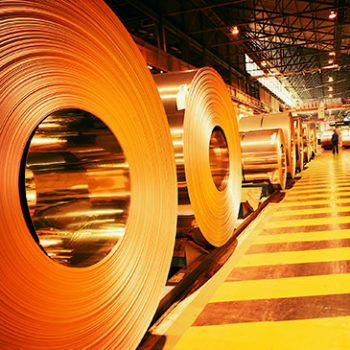Customer resource management (CRM) tools for manufacturers are often built right into their enterprise resource planning (ERP) systems. In searching for the right ERP system, however, is the fact that while you might find the right general ERP system, the CRM tool within the system doesn’t match your needs—or vice versa. In fact, solution fit is probably the single most important criteria in searching for a CRM. That is to say: does the solution fit with your manufacturing business strategy, and can it integrate easily into my current ERP system?
The core components of any CRM are the database and the tools it contains for processing that data. It is for this reason many people believe that CRM is a concept separate and apart from shop floor control or front office paperwork. Nothing could be farther from the truth. When starting construction of CRM in ERP, the first thing a manager should always consider is which what sort of CRM criteria will be collected and store within the ERP system in order to advance the customer relationship.
It is only after this needs-criteria list is built by an ERP software search team or person can the technological platform the CRM uses be considered. Again, CRM systems provide information and boost business process of the enterprise. Therefore, technology and technology support are crucial to the function and philosophy of CRM—all robust CRM systems work not only on data entry, but also on the algorithms used to process the data for both interpretation and anticipation. This is the reason CRM systems exist in the first place.
Whether or not they are contained within a larger ERP system, or are stand alone products, here are a few questions to ask when looking at CRM tools:
- Is the CRM software really suitable to my enterprise niche and the way I operate? The suitable software, apart from having functionalities that meet the demands, must give out guidance to implement business or similar modules, measures for users to select.
- How are contents of CRM expressed in the software? Are there tools in the CRM system that are, in fact, of use to me? Can I employ sales management, customer care, marketing, and other such things easily through the system? Is there any forecast function in the CRM system? If so, what is the forecast method and how scalable is it?
- What are the resource requirements of the CRM? This factor may include considerations of finance, IT infrastructure, manpower, and data entry according to department.
- Consider the compatibility of the software to other existing applications in your enterprise. If any IT changes are needed, compatibility of the CRM software must be reviewed by IT staff in order to ensure that any necessary changes are acceptable.
- Finally, is the CRM software customizable, and/or does the vendor provide some means of customizing the CRM to suit present and future needs? Customizability is not only the ability to change configuration, to change search and statistics processing algorithm but also ability to change database structure. It is, of course, desirable to fix the structure of the CRM as much as possible to ensure some sense of stability and integrity. However, changing structure at some level, sometimes, can meet needs without having to complicated and costly upgrades.
CRM is a great tool for the modern machine shop and manufacturing operation. It helps build a competitive edge by enhancing sales and customer relations. With it, you have your finger on the pulse of what your prospects and customers are thinking. Without it, you’re only guessing at how they feel, what they need, and how they’re reacting to what you’re selling.


 USA
USA
 United States
United States Indonesia
Indonesia Mexico
Mexico Australia
Australia United Kingdom
United Kingdom New Zealand
New Zealand Singapore
Singapore